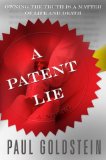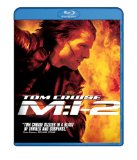
Paul Goldstein is an intellectual property law professor at Stanford Law School and the author of Goldstein on Copyright and Copyright, Patent, Trademark And Related State Doctrines. A Patent Lie is the second novel by Goldstein (his first is Errors and Omissions) and features a plot that unfolds around forty-seven year old attorney Michael Seeley, a solo practitioner patent attorney in Buffalo, NY.
When his estranged younger brother, Leonard, stops by to see him, we find that Leonard works as the chief medical officer for a small biotech company that has developed and patented a promising AIDS vaccine (AV/AS). Leonard wants Michael to step in to help but his motivation is left unclear.
We learn that the company, Vaxtek, has filed a patent infringement lawsuit against a traditional big-pharma drug company named St. Gall Laboratories. But, Vaxtek’s lead attorney has seemingly committed suicide in a nasty “threw himself in front of a train” incident. Leonard now wants his brother to take over this case — presumably because of familial bonds and not because of lack of lawyers in the world.
Putting aside the various family problems between the two siblings, Michael goes out to San Francisco to try the case with the assistance of another attorney, Chris Palmieri. Michael’s preparation for the trial and the subsequent trial make up the meat of the novel. Fortunately, the book is an easy read with a David vs. Goliath story line that keeps you engaged.
“A Patent Lie” is a good legal thriller with a variety of characters to keep you engrossed including love interest Lily Warren, a vaccine researcher, supposed inventor of the AIDS vaccine Alan Steinhardt and Joel Warshaw, the owner of Vaxkek. The story weaves together patent inventorship along with questions on immigration — a source of many of the top biotech scientists in the U.S.
In many ways the story is, like patent attorneys in general, intellectual and methodical in its execution so it sometimes gets bogged down in more legal information than some readers may want from their fiction. However, I suspect purchasers of this book will be those looking for books with plenty of substance to enjoy.

In the only movie I can think of where the super-villain in a (so-called) patent troll, director John Woo delivers all the explosions, bullet fire, car crashes and adrenaline-fueled visuals without being bogged down with details like plot lines and dialog.
For what it’s worth, the only other fictional story about a patent attorney I found is “Notes of a Patent Attorney: The Wally Mason Stories,” (Paperback) by Brian C. Coad.

As a european patent attorney, I found “A Patent Lie” was a very good legal thriller, with a lot of valuable information about US practice on patent litigation.
Another good thriller about a patent attorney, and in addition written by a patent attorney, is “Undue Diligence”.
See there : http://europeanpatentcaselaw.blogspot.com/2008/07/ides-de-lectures-pour-lt.html
The legal thriller, The Patent, features a patent attorney
Undue Diligence also features a patent attorney.
[…] It’s not often that patent litigation furnishes the subject of a new Hollywood film; inventor-side attorneys must be hoping the David-and-Goliath theme of the Universal Pictures release Flash of Genius redounds to their benefit. (Brian Baxter, AmLaw Daily, Oct. 3). The original New Yorker article on which the film is based is by no means devoid of balance, and includes a discussion of the late Jerome Lemelson, a longtime Overlawyered favorite (John Seabrook, The New Yorker, Jan. 11, 1993). Unrelatedly, a patent attorney turns up as the lead character of a fiction thriller in Paul Goldstein’s “A Patent Lie” (Stephen Albainy-Jenei, Patent Baristas, Sept. 29). […]
[…] other books including two novels devoted to intellectual property themes, Errors and Omissions and A Patent Lie. Professor Goldstein currently serves as of counsel at Morrison & Foerster in their […]